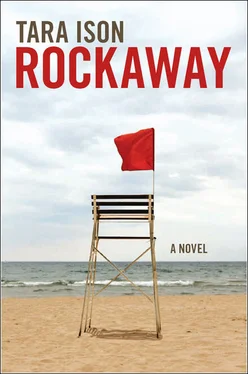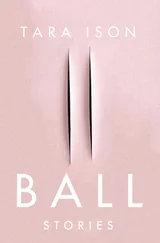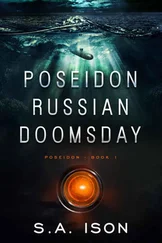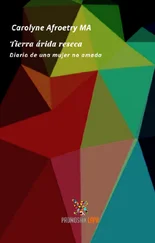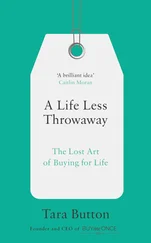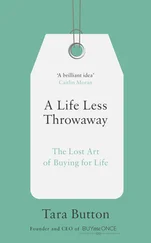Everyone troops happily to the kitchen sink to wash their hands. Back at the table Itzak passes her a plate of matzoh and she readies herself again, for the hurrying-from-bondage-and-Pharaoh’s-troops lecture (lamb’s blood smeared on doors, gross), the ten plagues that always creeped her out as a child (pestilence, boils, locusts, darkness and tragedy and despair to be visited upon their house at any moment), but Itzak’s discussion of matzoh is Freudian: The unleavened bread, he says, symbolizes the suppression of human ego. Risen bread, puffed up with yeast and air, shows the swelling of ego, the human soul presumptuous before God. Gwen proclaims all religious ecstasy — any type of religious faith, she argues, actually — to be merely a form of psychological repression if not outright delusion, which Jonah — apparently planning on rabbinical school — takes good-natured issue with, and as the debate continues and floats over her head and beyond her, Sarah quickly drinks down the glass of kosher wine Itzak has poured for her — an exception to the rule, but she’s never tasted kosher wine, is curious, although there is no discernible difference in taste from regular wine, she thinks — then is too embarrassed to ask for more. Always plenty of wine, at home, at least. The Kiddush, the blessing of the wine, fill that cup again, by all means.
Marty ignores her during dinner, listens nodding to the family’s textbook-and-Torah-peppered deliberations, and cracks the matzoh in his teeth. Darlene finally brings out a macaroon-ringed platter of fruit for dessert but before the last of the pineapple is tugged from its husk, Marty wanders from the table. Sarah feels confused, then resentful, unsure whether she should remain with her hosts, or follow. She excuses herself to go to the bathroom.
She finds him on the living room couch, reading in Newsday about a Texas couple on death row, both about to be executed for killing their two children.
“Ah, family life,” she says brightly. He frowns a little at her and she realizes he thinks she’s being snide about his friends. “No, that family,” she adds, tapping the headline.
“Yeah, look at that. Terrible. What about you?” He puts the paper aside.
“My family? No, we haven’t killed each other yet,” she says.
He looks at her, not seeming to get the joke. “Yeah? That’s it?”
“Well, it’s just my parents. My family. They’re in San Diego.”
He nods.
“Actually,” she says, “well, I had a younger brother. But he died.”
He blinks at her. “Wow.”
“Yeah. When he was really little.”
“What happened?”
“Meningitis. He was almost four.”
“Oh, man. I’m sorry.”
“Thanks. His name was Aaron. But it was a long time ago, so. .” Butter blond hair, toddler diapers, sticky hands. Smiling parents. She clears her throat. “I hardly even remember him.” Baby clothes in blues: robin’s egg, turquoise, cerulean sky.
“That’s terrible. A terrible thing for parents.”
“I know.” She nods.
“’Cause that’s really just, it , you know? Family, kids. Why we do any of it. That’s what keeps us going.” He tilts his head toward the dining room. “Like in there. Beautiful.”
“Yeah.” I could go back and eat pineapple, she thinks. I could just go home. Her eye catches Itzak, in the dining room, setting out a bottle of brandy and several tiny glasses. It will look bad if she suddenly rushes back in there, now. “So, for something like that,” she asks, tapping the newspaper again, “where do you stand?” She sits deliberately at the other end of the sofa.
“Stand on what?”
“The death penalty. Eye for an eye? Blood atonement?”
He ponders for her, scratching at his black knit cap. “I guess you could argue either side, you know?”
“Just keep questioning, right?”
“Yeah. That’s the thing.”
“I thought you’d have a strong opinion about it. Either way. You know, vengeful God, benevolent God. .”
He shrugs. “Whatever.”
“You say that a lot. ‘Whatever.’”
“I do?”
“It’s so dismissive.”
“What do you mean?”
“It’s like you’re not only wiping out what you’ve just said, you’re erasing anything the other person said, too. You’re dismissing any connection. Like, ‘why bother?’” She demonstrates, contemptuously, dismissively waving a hand. “Whatever.”
“Huh. You’re right.”
“Not that I took it personally,” she says, realizing how in saying that she is exhibiting exactly the opposite.
“No, thank you. This is good you’re telling me this. You’re very insightful.”
She suddenly feels ridiculous. She looks away from him and picks up a book tucked in the cushion gap of the sofa: The Torah Anthology . She opens it to the middle and focuses on rituals for purifying the leprosy of the soul, trying to convey that he should return to his newspaper and do the same. He continues to study her. She wonders what his head is like under the knit cap — thready hair, bald scalp, scars, freckles? She wonders how old he is. He must be around Julius’s age, she figures, if they were teenage buddies. She has a sudden, mean urge to discuss prostate cancer.
“What’s that?” he asks.
“What?”
“That.” He points to her right hand turning a page. “That.”
“Oh,” she says. “That. It’s nothing.” She sets the paper down, covers with her left hand the crescent ridge of scar embracing her right thumb joint. “Nothing. Old kitchen accident. I was cutting a bagel.” She thinks this is funny, but again he doesn’t seem to get the joke. “People don’t usually notice it,” she tells him. “It isn’t very noticeable.” She smoothes down the long sleeves of her blouse, crosses her arms.
“How did your painting go today?” he asks.
She shrugs. “Bad day.”
“What’s a bad day?”
“Not getting any work done. I just wandered around. Ate some strawberries. Wasted time.”
“Why is that a waste?”
“Well, this is such a big opportunity. Being here. Having all this time to myself, this whole summer to focus on my work, no job or anything. And, you know, tick tick tick. I shouldn’t just be. . strolling around. I mean, my parents rely on me a lot, and I’m not there. I’m here, just doing the melancholy-artist-on-the-beach thing. I am a strolling, wandering cliché.” He nods at her, but it is thoughtful nodding, not affirming. “I might as well be at home,” she adds. “If I’m not going to be more. . oh, I don’t know.”
“You worry about them. You take care of them. That’s nice.”
“I try. I do what I can. It’s not like they need nursing care, anything like that. Although my dad doesn’t like my mom driving anymore, so I’m sort of on call when she has errands or something. And he doesn’t eat like he’s supposed to, with his heart, we’re always arguing about his food. I do their bills and stuff. But they’re pretty self-sufficient. They’re doing fine. I would never have left them alone to come here, otherwise.”
“Yeah, sure.” His face is thoughtful, and she feels a rush of guilt. He must think she’s terrible, abandoning her parents this way.
“And I made sure they had phone numbers to call if they need any help. I’m sure they’ll be fine. There’s a Jewish Family Services they can call. And they have neighbors. But they won’t. I mean, they like it when I’m there to do stuff. They’re used to how I do stuff for them. As opposed to some stranger coming in to help.”
“That’s beautiful.”
“Well, I do my best. They’re my parents.” She shrugs again. “What’re you going to do, right?”
“But there’s stuff you need to do for you now.”
Читать дальше
